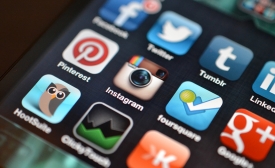digital diplomacy
As Australian digital diplomacy strives to catch-up to the rest of the world, these links will highlight the most creative and effective ways in which countries are leveraging the internet for foreign policy gain.
Led by the inter-agency Center for Strategic Counterterrorism Communications (CSCC), the Obama administration has taken the war on ISIS to social media platforms such as Twitter and YouTube, where such initiatives as the Think Again Turn Away (@ThinkAgain_DOS) have emerged. This campaign aims to counter-radicalization and dissuade young Muslims from joining ISIS.
As ambitious as that may sound–trying to raise the living quality for the planet’s poorest billion people–Global Citizen, an innovative initiative to improve matters of poverty and inequality worldwide, has rapidly gained popularity and influence

A how-to guide for skillful social media use.
Friends Beyond Borders is a virtual peace building course wherein an Indian and a Pakistani has been paired to be “Indo-Pak E-Pals”. Through this eight-week interactive course, the fellows are guided by a mentor who gives them weekly plans/activities based on a curriculum designed to familiarize them with the ‘other’, its culture, society, politics and the existence of divergent narratives.
Sehreen NoorAli tells TechRepublic about using the digital outreach in the Middle East and building a community for women in the education technology industry. [...] Working in the State Department made her shift her attention and interest from international development to public diplomacy.
Online activists are deploying some surprising strategies to combat ISIS propaganda, and while some experts are applauding their initiative, they are also questioning how much U.S. officials can learn from their efforts.
The unprecedented savvy of the Islamic State — the shocking reach of its “digital caliphate” — makes this work more urgent than ever. Online, we move too slowly and know too little to combat this generation of Web-native jihadists.







